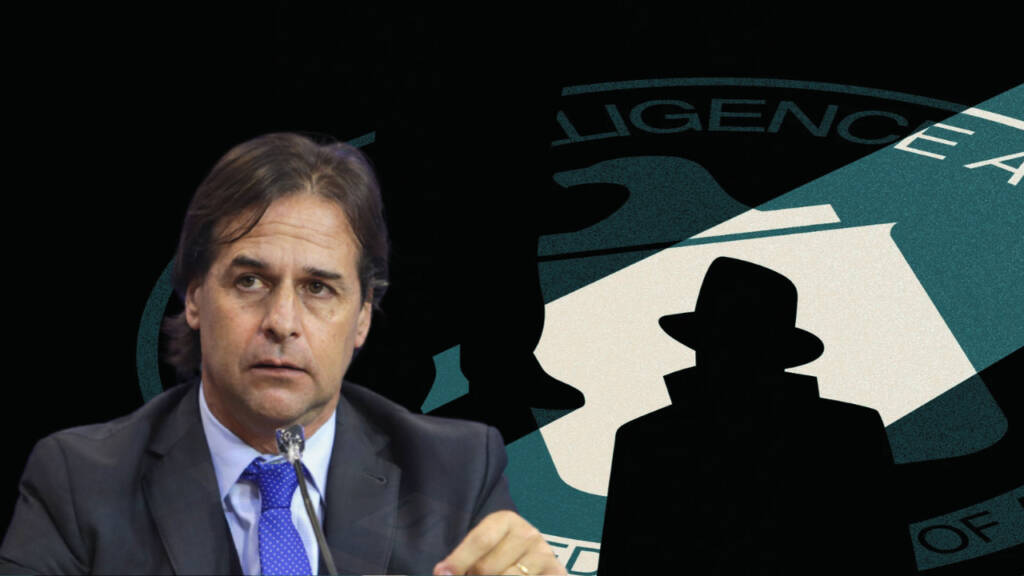With the reports emerging of the CIA’s increasing involvement in Paraguay, there are fears that the agency’s actions could have far-reaching consequences for the entire region. This time, the CIA is eyeing Uruguay.
The CIA’s shadowy activities in South America are shrouded in mystery, and their true intentions remain unknown. Can it really be trusted by Uruguay this time?
Recent reports have surfaced of the United States’ intelligence apparatus expanding throughout South America, with Uruguay being the latest country to exchange information with the US Central Intelligence Agency (CIA). Uruguay’s Interior Minister, Luis Alberto Heber, confirmed that representatives from the CIA had visited Uruguay to exchange information to combat drug trafficking.
While combating drug trafficking is a noble cause, the involvement of the CIA in Uruguay affairs raises several concerns. Historically, the CIA has been involved in several covert operations aimed at destabilizing governments in South America. There isn’t a country in Latin America where the CIA hasn’t been involved in coups.
Uruguay has had its own struggles with political instability in the past. The country was ruled by a military dictatorship from 1973 to 1985, during which human rights violations were rampant. During the military regime in Uruguay, an incredibly high percentage of the population, 2%, was incarcerated. This is the highest incarceration rate per capita in the world to date. The dictatorship was backed by the US government, which saw Uruguay as a key ally in the fight against communism in South America.
The fact that the CIA is now involved in Uruguay’s affairs raises concerns that the agency may be trying to exert influence over the country’s political and social landscape. The CIA’s history of interfering in the affairs of other countries, coupled with Uruguay’s history of political instability, is a cause for concern for many Uruguayans.
Further, the CIA’s role in drug-trafficking has been widely documented. The CIA has been implicated in various forms of illegal activities, including drug trafficking and violence in Latin America.
One of the most significant factors that facilitated the CIA’s involvement in drug trafficking and violence in Latin America was the U.S. government’s desire to combat communism during the Cold War. The CIA’s primary mission was to gather intelligence on foreign governments and protect U.S. national security interests. However, in pursuit of this mission, the CIA often worked with authoritarian regimes and engaged in covert operations that violated international law.
ALSO READ: The US is rigging elections in Paraguay
In the 1980s, the CIA was involved in supporting the Contras, a rebel group fighting the Sandinista government in Nicaragua. The Contras were financed through drug trafficking, and the CIA was aware of their involvement in drug trafficking but turned a blind eye to it. In fact, a report by the Senate Intelligence Committee corroborated this claim that the CIA “actively supported” Contra groups. The CIA’s involvement in the Contra drug trade resulted in the influx of cocaine into the United States, contributing to the crack epidemic of the 1980s.
In Colombia, the CIA worked with the Medellin drug cartel to finance the Contras in Nicaragua. The Medellin cartel became one of the most powerful drug cartels in the world, responsible for the production and distribution of cocaine on a massive scale. The violence associated with drug trafficking in Colombia has had a devastating impact on the country, leading to the displacement of millions of people, widespread human rights violations, and the rise of paramilitary groups.
The CIA’s involvement in illegal activities has undermined democracy and human rights in the region, and contributed to the rise of drug cartels and violence.
Further, this sharing of sensitive information between the CIA and Uruguay happens at a time when the CIA is getting increasingly involved in Paraguay. Last week, Paraguayan President Mario Abdo Benítez held talks with the CIA’s Deputy Director David Cohen. Reports suggest that CIA is looking to rig elections in Paraguay as it can turnaround relations between China and Taiwan.
Read more: Miguel Diaz-Canel has buried the Castro’s forever and it’s a great great thing for Cuba
While the CIA’s involvement in these activities may have been motivated by a desire to protect U.S. national security interests, it has had severe consequences for the people of Latin America. Therefore, the recent exchange of information between the CIA and Uruguay puts the region’s security at jeopardy. CIA’s history tells us that it shouldn’t be trusted. Uruguay must take lessons from the same.
https://www.youtube.com/watch?v=lPoIt5BjRq8
